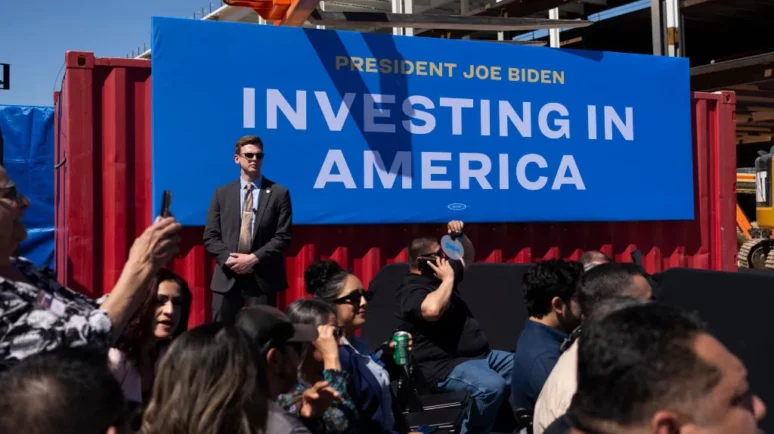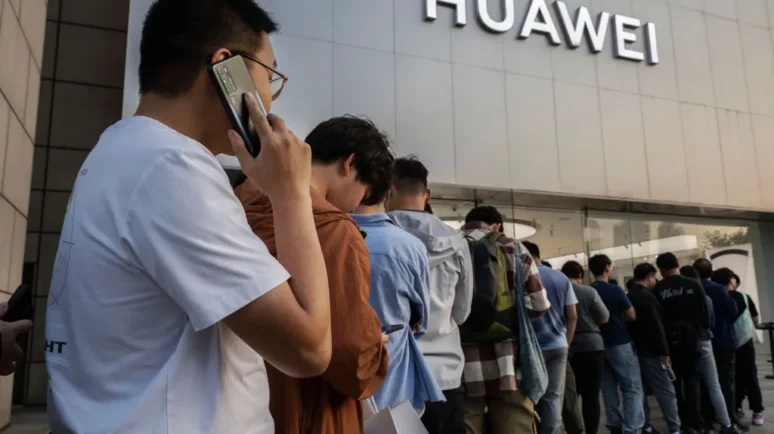Huawei Chip Licenses Revoked By US: Western Sanctions Designed To Curb China’s Tech Dominance

Intel has had an export license that allowed it to sell chips to Huawei revoked. Photo by Joan Cros/NurPhoto via Getty Images.
Key Takeaways
- The US has revoked licenses that allow Intel and Qualcomm to sell semiconductors to Huawei.
- The revocations are the latest in a string of restrictions designed to prevent Huawei from accessing US technology.
- On the surface, sanctions are about protecting US national security interests.
- But increasingly, trade restrictions target Chinese technology businesses without any underlying security rationale.
Since 2018, Western governments have sought to reduce Huawei’s influence in domestic markets by restricting who can buy technology from the Chinese company. But the latest US sanctions against Huawei aren’t aimed at what it sells but what it can buy.
According to people familiar with the matter cited by Reuters , the government has revoked licenses that allowed Intel and Qualcomm to sell chips to Huawei. Against the backdrop of rising anti-China sentiment in Washington, the move represents a new chapter in the Sino-American trade and technology war.
Timeline of Huawei Sanctions
In the US, sanctions against Huawei can be traced back to the 2018 National Defense Authorization Act, which barred the Defense Department from procuring certain telecommunications equipment or services from the company. Restrictions were extended to executive branch agencies a year later.
The first step toward the latest decision occurred in 2019 when the Commerce Department blacklisted Huawei by placing it on the ‘Entity List,’ forcing the company to get US government approval to buy American technology.
At the time, Huawei CEO Ren Zhenfei described the move as unfair, and many speculated that it would cause the firm irreparable damage. But since then, Huawei has put a lot of effort into mitigating the negative impact on its supply chains
In November 2021 President Biden signed the Secure Equipment Act to prevent companies like Huawei from receiving new equipment licenses from U.S. regulators. However, licenses that had already been granted remained valid, including one held by Intel since late 2020.
China Hawks Slam Failure to Prevent Chip Exports
Intel’s sales to Huawei were recently thrust into the spotlight by the revelation that the firm’s MateBook Pro X uses the Meteor Lake CPU. China critics in Congress jumped on the news, with lawmakers lamenting that Intel was still shipping chips to Huawei despite the government’s restrictions.
“One of the greatest mysteries in Washington, DC is why the Department of Commerce continues to allow U.S. technology to be shipped to Huawei” commented Republican Congressman Michael Gallagher. “These approvals must stop,” insisted his colleague Michael McCaul.
National Security or Protectionism?
In official rhetoric, US sanctions against Huawei are about national security.
Semiconductors have been a major focus of the government’s efforts to restrict technology exports to China. Starting during the Trump administration and continuing during Biden’s presidency, export bans have targeted both the chips themselves and the equipment used to manufacture them.
China’s military ambitions arguably justify strict export controls, especially considering limited supplies of the most advanced AI chips.
But lawmakers’ outrage over the use of Intel CPUs in consumer electronics is less obviously about protecting US military and intelligence superiority. Instead, Washington’s fiercest China hawks seem intent on pursuing a policy of trade protectionism that imposes blanket restrictions on Chinese manufacturers.
Revoking export licenses could damage Huawei’s competitiveness. But it could also hurt American chip-makers.
Anti-China restrictions in the Trump and Biden era run counter to the free market principles that have been a hallmark of American trade policy for the last hundred years.
The current political climate suggests this historical anomaly still has legs. And unless relations between the 2 superpowers change drastically, US sanctions will continue to burden Huawei and its would-be suppliers.


